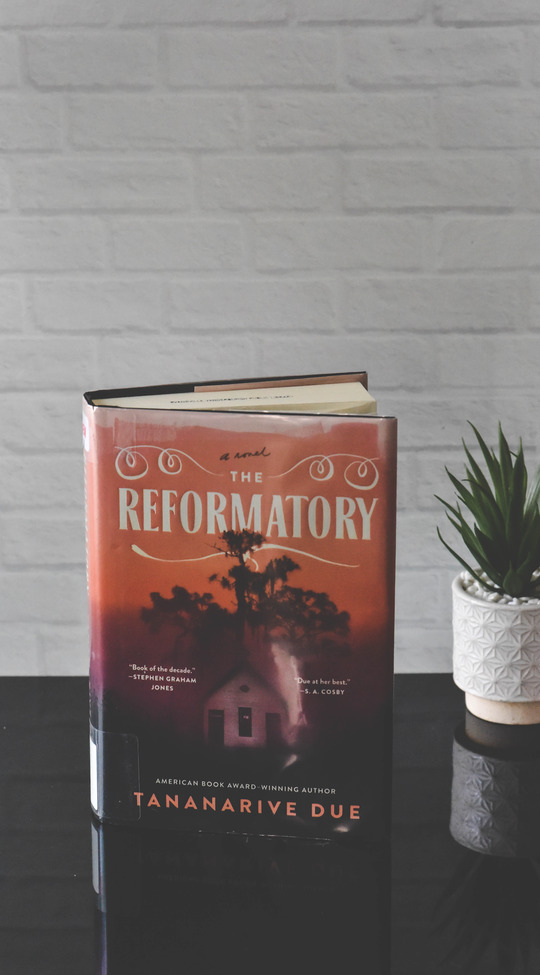“You’re in for a treat. The Reformatory is one of those books you can’t put down. Tananarive Due hit it out of the park.” —Stephen King
A Tense Walk Through the Corridors of the Past
The Reformatory by Tananarive Due is not just another horror novel. It’s a visceral experience that takes us to the heart of a dark era. The year is 1950, and we meet Robbie Stephens, Jr., a twelve-year-old thrown into the depths of a reformatory school that mirrors the true horrors of the infamous Dozier School for Boys. But this is no ordinary tale. Due’s novel is woven with supernatural threads that reveal the hidden truths of a torturous past.
Robbie Stephens: A Boy with a Ghostly Gift
Robbie’s ability to see ghosts, or “haints,” as they’re referred to in the book, serves as a unique lens through which we understand the grim realities of Gracetown School for Boys. What was a source of comfort in coping with his mother’s death becomes Robbie’s curse and blessing within the reformatory’s walls. The spectral presences he encounters are not just remnants of the past but bearers of secrets that the living have tried to bury.
The Horrors of Jim Crow South and the Reformatory
Set against the backdrop of the Jim Crow South, The Reformatory lays bare the systemic racism and brutality that pervaded the era. The school, ostensibly a place for reform and education, is a microcosm of the larger societal ills—where boys are punished not for their misdemeanors but for the color of their skin and the lack of power they wield.
Gloria’s Quest: A Sister’s Love Against All Odds
The narrative is not solely confined to the grim interiors of the school. Gloria, Robbie’s sister is the prime example of hope and determination. Her relentless pursuit to free Robbie is a testament to the familial bonds that can challenge the most oppressive of systems. Through Gloria’s fervent efforts, we see the resilience and resourcefulness of those who fought against the injustices of their time.
Survival and Friendship: The Bonds that Withstand Adversity
Robbie’s friendship with Redbone and Blue adds layers of depth to the narrative. These characters are not mere sidekicks but individuals with their own stories and struggles. Their camaraderie offers a glimmer of humanity amidst the reformatory’s dehumanizing conditions, teaching Robbie—and by extension, the reader—the unspoken rules of survival.
Unveiling the Truth: A Supernatural Reckoning
Due’s masterful use of supernatural elements serves a dual purpose. It’s not just a plot device but a metaphor for the silenced voices and untold stories of the reformatory’s victims. Robbie’s interactions with the haints are chilling encounters that strip away the facade of the school, revealing a history marred by violence and loss.
A Riveting Work by Tananarive Due
Tananarive Due’s storytelling prowess is on full display in “The Reformatory.” She stitches together a tale that is as much about a young boy’s harrowing experience as it is about America’s dark past. The author’s personal connection to the narrative—inspired by a relative whose story remained unspoken in her family—adds a layer of authenticity and emotional weight to the book.
The Reformatory’s Haunting Echoes
The Reformatory is a book that lingers long after the last page has been turned. It’s a testament to the power of storytelling to unearth the hidden chapters of history and to honor the memories of those who suffered through them. Tananarive Due does not just write; she resurrects the ghosts of the past and gives them a voice that demands to be heard.
A Mirror to the Present Through the Reflections of the Past
In The Reformatory, the past is not a distant memory but a mirror reflecting issues that continue to resonate in the present. Due’s ability to draw parallels between Robbie’s struggles and the ongoing fight against systemic injustices is both profound and unsettling. This book not only educates but also serves as a reminder that the ghosts of history can still be found haunting the present if we only dare to look closely.
The Narrative Craft: A Blend of History and Horror
Tananarive Due’s craft as a storyteller shines as she seamlessly blends historical fiction with elements of horror. The suspense is palpable, and the horror is not just in the supernatural occurrences but in the stark reality that the events described were once lived experiences. The pacing is expertly handled, with each chapter ratcheting up the tension, compelling readers to follow Robbie’s journey with a mix of dread and hope.
An Emotional Odyssey: The Reader’s Journey
Reading The Reformatory is an emotional odyssey. Due evokes a range of emotions, from fear to anger, from sorrow to hope. She challenges readers to not only engage with the characters on a superficial level but to feel their pain, their fears, and their small triumphs. Robbie’s story may be fictional, but the emotions it elicits are very real and very powerful.
The Echoes of Tananarive Due’s Legacy
As an American Book Award-winning author, Tananarive Due has a reputation for confronting difficult subjects with grace and power. The Reformatory is a continuation of her legacy, as she uses her narrative prowess to shine a light on forgotten histories. Her work is a bridge between the past and the present, and The Reformatory is a cornerstone of that bridge. It is a must-read for anyone interested in the intersection of history, social justice, and the supernatural. It’s a novel that educates, engages, and haunts, leaving an indelible mark on the reader’s consciousness. Due’s novel is a powerful reminder that while the past may be set in stone, its stories are alive and demand to be told and remembered.
The Reformatory is a brilliant work that offers a window into a time that many would rather forget but none should. It’s a story of resilience, the unyielding nature of hope, and the enduring power of the human spirit. Tananarive Due has crafted not just a novel but a memorial to those who walked the halls of such institutions—both seen and unseen. Robbie’s journey through the terror of the Jim Crow South and the haunted corridors of Gracetown School for Boys is one that will resonate with readers long after they’ve emerged from the shadow of The Reformatory.





















1 Comment